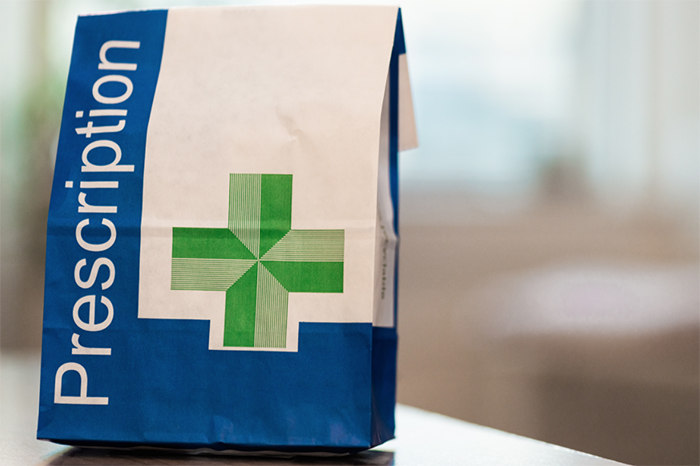Opinion: What are the risks of using volunteers to deliver medicines?
In Practice
Follow this topic
Bookmark
Record learning outcomes

Changes to the NHS terms of service designed to protect vulnerable patients during the Covid-19 outbreak have raised concerns among community pharmacists regarding their legal and ethical responsibilities where volunteers are used, says solicitor Noel Wardle.
In essence, the change requires pharmacists to investigate how prescribed medicines can be delivered to a vulnerable patient's home. That might be via a friend, relative or carer, or, where those options are not available, through the NHS Volunteer Responders programme.
This has prompted concerns where volunteers engaged through the NHS Volunteer Responders programme are used.
For example, if a volunteer makes a mistake (such as delivering medicines to the wrong patient), breaches patient confidentiality (by opening dispensing bags, for example), or steals medicines, will the pharmacy owner be legally and/or professionally accountable?
The pharmacist, or pharmacy owner, has a non-delegable duty of care towards their patients. If a delivery person makes a mistake when delivering a medicine then the pharmacy owner would ordinarily be accountable for that mistake, both in terms of any financial compensation for injury and in respect of an investigation into whether the pharmacy owner's conduct fell below the GPhC Standards.
The starting point, therefore, remains that pharmacists continue to be responsible for the supply of medicines to their patients until the medicine is handed over to the patient on their doorstep. It is expected that pharmacists will take suitable and sufficient measures to ensure that patients receive their medicines safely.
Unusual circumstances
However, what is €suitable and sufficient€ will, of course, depend on the particular circumstances that apply at the time that the medicines are being delivered.
At the moment we are in a very unusual set of circumstances, and actions that might not, in ordinary times, be considered reasonable, may be justifiable at the moment: if the choice is between the patient not getting their medicines at all, or getting them through an NHS Volunteer, the latter would probably be the more reasonable course of action.
If a reasonable course of action is to use an NHS Volunteer, what risks does this create for the pharmacist or pharmacy owner? After all, you would usually expect a pharmacy owner who is delivering medicines to patients to use either a reputable delivery company or to use trained delivery drivers.
Those drivers would go through the usual employee checks, would receive training on their roles, would act under SOPs and would have their performance monitored and assessed.
The pharmacy would maintain an audit trail of deliveries, and would investigate any discrepancies. If repeated errors occurred, you would expect the pharmacy owner to identify these and take appropriate remedial action.
This ongoing duty of care raises concerns that pharmacists who use volunteer delivery drivers may be opening themselves up to risks should something go wrong €“ it might be felt that a volunteer who is delivering medicines may not exercise the same degree of care and skill as an appropriately trained delivery driver, with a consequent increase in the risk of something going wrong, for which the pharmacist could ultimately be held accountable.
Off the hook?
The GPhC has sought to allay those fears by issuing a joint statement with the RPS. The joint statement provides that pharmacists would not be responsible for the actions of NHS Volunteers.
Does this statement get pharmacists off the hook if a volunteer makes a mistake? Not quite, unfortunately.
The joint statement uses terms which have a subjective element and, consequently, leave open the possibility that pharmacists would still remain responsible for errors by volunteers.
For example, it refers to volunteers being used €in good faith€. Pharmacists must €act in accordance with the standards€ and must use volunteers €in line with the service specification€.
Ultimately it would be for a court (in respect of any negligence claim) or a fitness to practise committee (in respect of any GPhC concern) to decide whether a pharmacist or pharmacy owner acted reasonably in engaging a volunteer, and whether any steps could reasonably have been taken to reduce the risk of the error occurring.
Whilst the joint statement therefore gives some comfort, pharmacists would be well-advised to consider carefully the use of volunteers.
When using volunteers, pharmacists should assess the risks of doing so, and consider what training and level of oversight is reasonable to reduce the risk of issues arising. That assessment should be documented in case it needs to be referred to in the future.
At the very least, for example, it would seem appropriate for volunteers to be required to read the pharmacy's delivery SOP and to sign the SOP to confirm that they have read and understood it.
It is important to emphasise that it is better for patients to get their medicines through a volunteer than not at all, and pharmacists should not worry unduly about using volunteers to deliver medicines for them.
However, it is worth giving some thought to how this will work for the individual pharmacy, assess the risks and mitigate those as far as possible.
